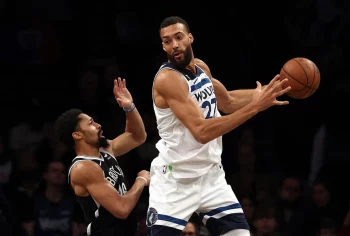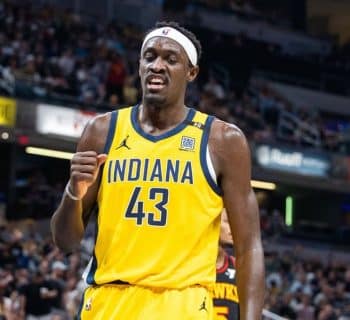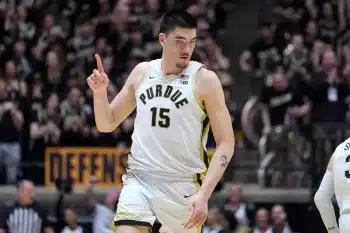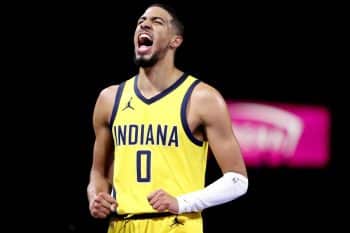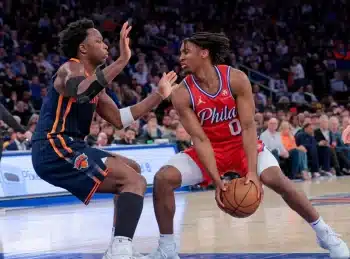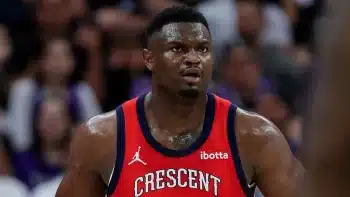NBA
NBA Sunday: Kevin Durant’s Wise Decision

As LaMarcus Aldridge begins preparing for his first season as a member of the San Antonio Spurs, fans of the Portland Trail Blazers watched their franchise, which seemed to be just one piece away from being a contender, pull the plug and begin building from ground zero.
I wonder if the Oklahoma City Thunder await the same fate.
In July 2014, Aldridge famously said that he was not going to sign an extension with the Blazers, but that he was forgoing the option because it made the most financial sense to do so. One of the features of the NBA’s current collective bargaining agreement is a rule that mandates that a player actually become a free agent in order to re-sign for a full five-year term with the team that owns his Bird rights.
This is a paradigm-shifting mandate as no such rule existed prior to the enactment of the 2011 collective bargaining agreement. In recent years, Deron Williams, Chris Paul, Dwight Howard, Carmelo Anthony and Aldridge each have essentially held the collective hearts of their respective team’s fan base in their hands. Some guys stayed and some guys left, but the bottom line is that everyone had to opt to become a free agent as opposed to signing an extension and avoiding the circus that ensues when it is discovered that a superstar player will make the most financially prudent decision in forgoing the extension.
To put it simply, as Durant enters the 2015-16 season, his salary is set at $20.15 million. By rule, an extension could add three additional years to his deal, ensuring that he remains in Oklahoma City through the end of the 2018-19 campaign. However, by rule, Durant’s first-year salary could be no higher than 107.5 percent of the salary in the final year of his deal, which, in this case, would be $21.66 million. With 7.5 percent raises of each of the two additional seasons, Durant would earn $23.28 million and $24.9 million for the 2017-18 and 2018-19 seasons, respectively.
In total, his three-year extension would net him about $69.8 million and would see him re-enter free agency in July 2019, when he would be closing in on his 31st birthday.
While that certainly would be enough to feed his family, Durant would not be maximizing his earning potential in his prime years.
What most people do not understand (and it’s no fault of their own since the NBA’s salary cap is phenomenally cumbersome and difficult to fully understand), is that tenure, timing and the state of the league’s finances have a monumental impact on a player’s earning potential. Factors outside of Durant’s control have a direct impact on his salary, and the timing and manner with which he signs a contract has a direct impact on what type of rules apply to the salary that he is able to earn.
In other words, the NBA’s new television deal – that everyone has been discussing for quite some time now – almost triples the league’s television revenue. The cap had been increasing over the past few years, going from $58.68 million for the 2013-14 season to $63.06 million for the 2014-15 season and $70 million for the 2015-16 season.
Now, however, with the new television deal, estimates of cap figures for the 2016-17 season are around $90 million. Estimates of cap figures for the 2017-18 season, depending on who you ask, is somewhere between $105 million and $108 million.
Under the rules of the current collective bargaining agreement, a player’s tenure determines their maximum salary. When Durant becomes a free agent next July, he will have had nine years of experience, making him eligible to sign a contract that will pay him a maximum of 30 percent of the salary cap.
Assuming a $90 million cap, that means that Durant could sign a new contract that will pay him approximately $27 million in the first year. With the maximum-allowable 7.5 percent raises each year, if Durant opted to sign a five-year Bird deal with the Thunder, he would earn $143 million through the conclusion of the 2020-21 season. He would then re-enter free agency near his 33rd birthday.
This entire exercise – the laying out of these facts and the presentation of these numbers – is the type of exercise that every good agent has had with each of their clients.
Why would Durant sign an extension with the Thunder that would guarantee him $70 million when he could simply wait until he becomes a free agent and potentially sign a contract guaranteeing him roughly $140 million?
The better question, though, is whether this system is actually best for the league. It doesn’t seem like it is, and it is one issue that I am hearing will be addressed during the next round of collective bargaining agreement negotiations.
Players would like to get their guaranteed money sooner, and teams would like to not have to sit through an uncomfortable final year of its star player’s contract and hope, on a whim, that he will ultimately decide to re-sign.
The simple solution seems to be to allow a player who signs an extension with his current team to sign for the same terms would be able to ink had he opted for free agency, and for the exact dollar amount of the extension to be determined based upon what the cap figure will be when the first year of the extension takes effect (instead of basing it off of what the player’s salary in the final year of his previous contract was, which is what the current system does).
So yes, it makes all the sense in the world for a player like Durant to forego the extension, just like it made all the sense in the world for LaMarcus Aldridge to do the same.
The scary thing for the Thunder, though, is that Durant could ultimately mimic Aldridge in another way: bolting.
Something happened in the one-year period between July 2014 and July 2015 that caused Aldridge to change his mind and leave Portland. Although Durant has not explicitly stated that he will re-sign with the Thunder, the Aldridge situation shows us that things can change quickly.
With Billy Donovan taking over, Enes Kanter re-signed and Cameron Payne drafted, the Thunder seem to have some new faces, new issues and new questions.
The biggest question, though, obviously, is what the future of Durant holds?
Unfortunately, under the current collective bargaining agreement, it is a question that every franchise with a financially prudent NBA superstar will be asking themselves at some point.
At the end of the day, for Sam Presti’s sake, let’s just hope that the Thunder walk away from this better than the Blazers.
